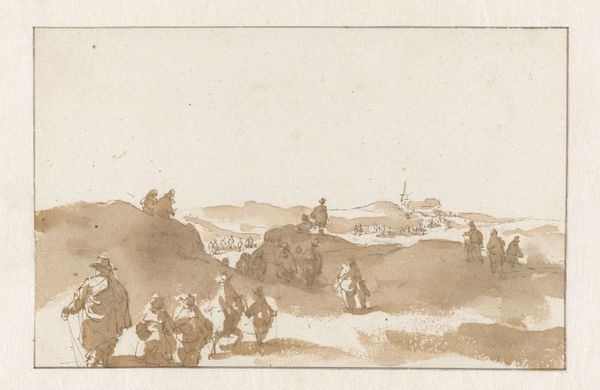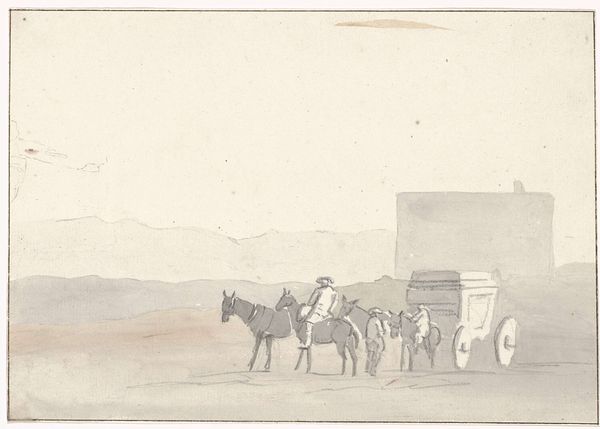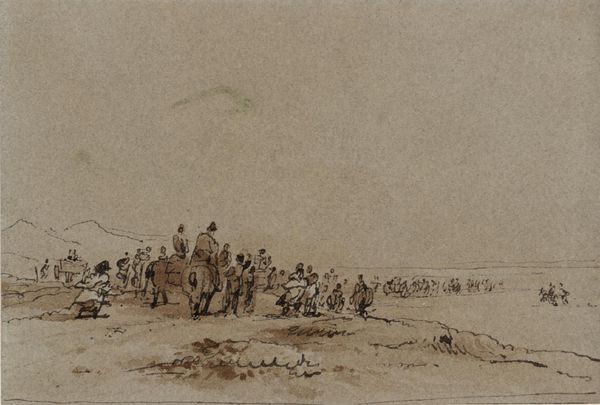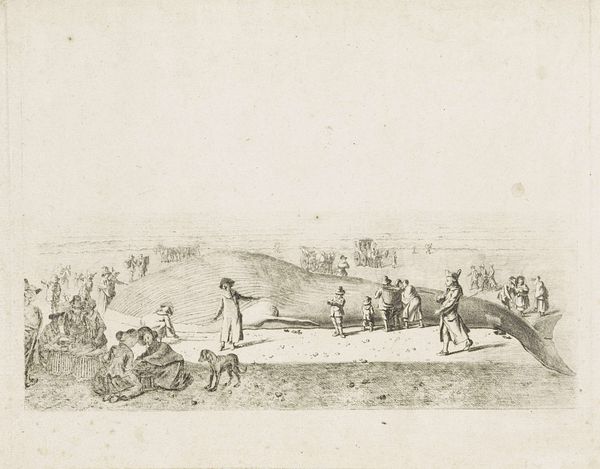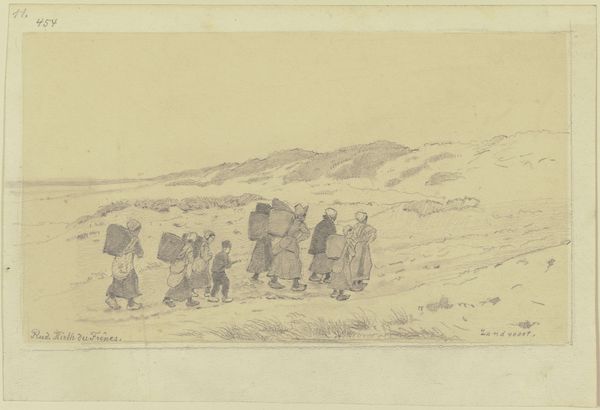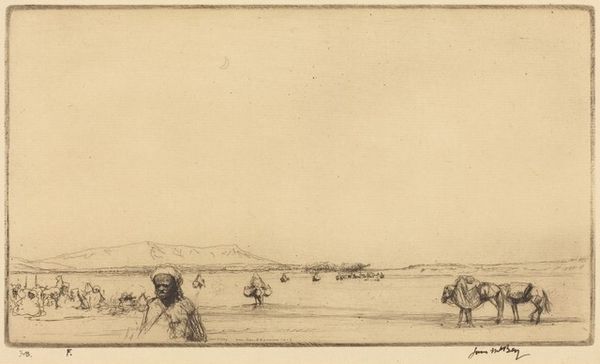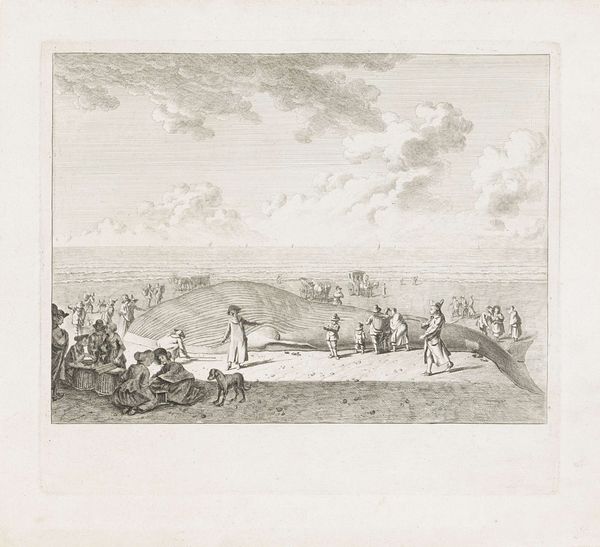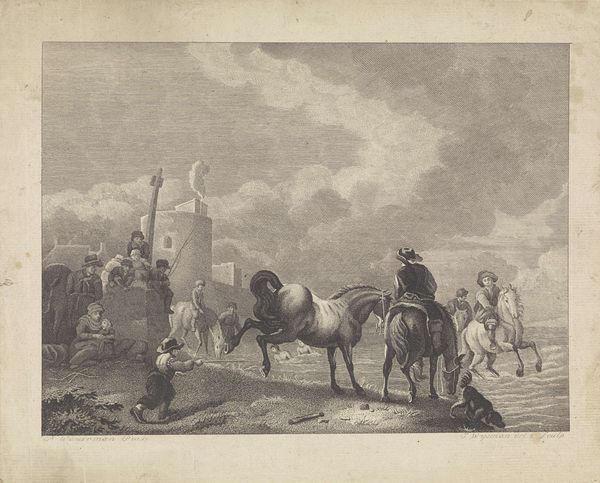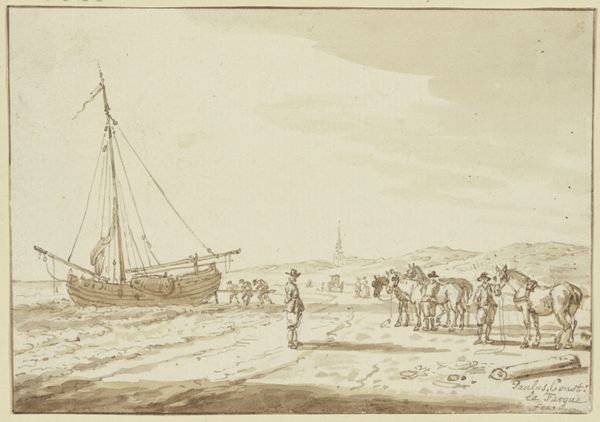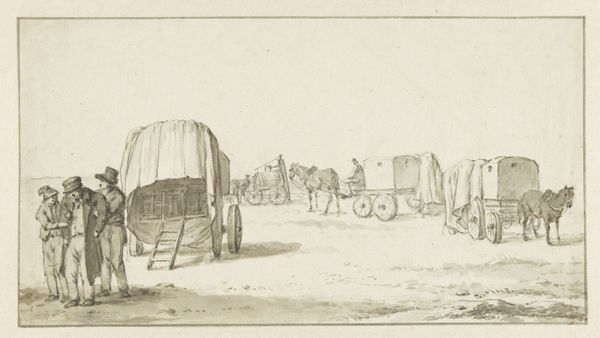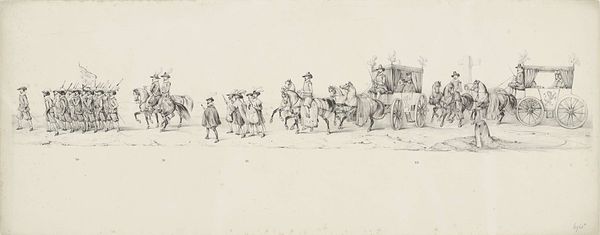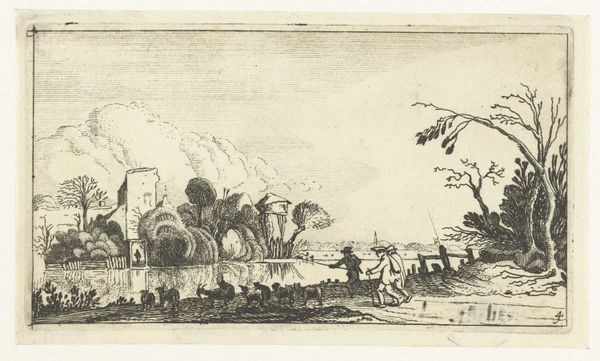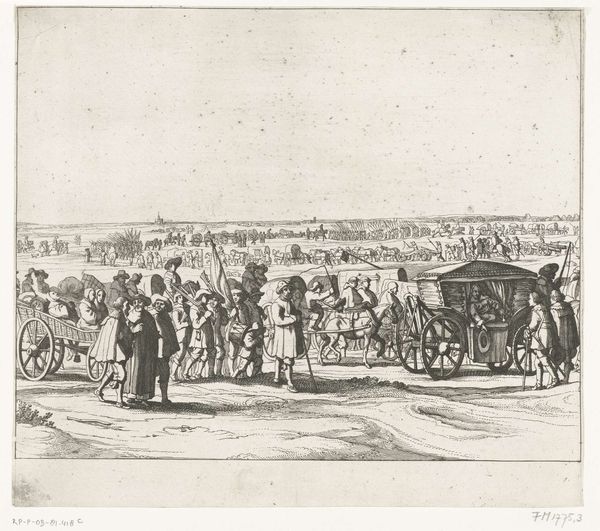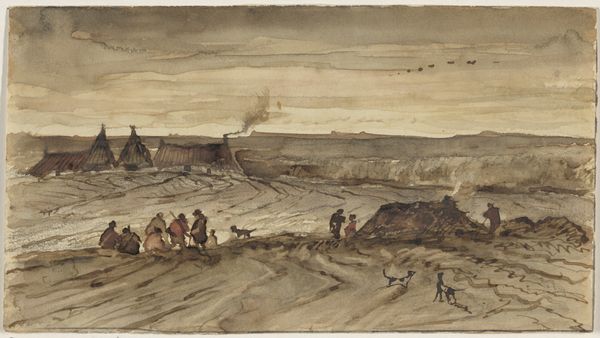
Aangespoelde potvis op het strand tussen Zandvoort en Wijk aan Zee, 20 februari 1762, op de rug gezien 1762
0:00
0:00
Dimensions: height 160 mm, width 232 mm
Copyright: Rijks Museum: Open Domain
Vincent Jansz. van der Vinne created this artwork in 1762 using pen and watercolor. The somber palette, dominated by browns, grays, and muted blues, immediately sets a melancholic tone. This is contrasted by the subtle activity of the crowd. The composition is structured by a stark contrast in scale. The colossal form of the beached whale commands the foreground, its massiveness emphasized by the diminutive figures surrounding it. Van der Vinne uses this dramatic size disparity to highlight humanity's ambivalent relationship with nature. The whale's presence destabilizes the conventional landscape. The traditional sense of order and harmony is disrupted. The carcass prompts a meditation on mortality, both of the natural world and, by extension, of human endeavors. Note how the artist invites us to consider our place within this larger, indifferent universe. Van der Vinne’s choice of watercolor allows for a delicate rendering of light and atmosphere, further enhancing the sense of transience and impermanence that pervades the scene. It is a reminder that fixed meanings are illusory.
Comments
No comments
Be the first to comment and join the conversation on the ultimate creative platform.
